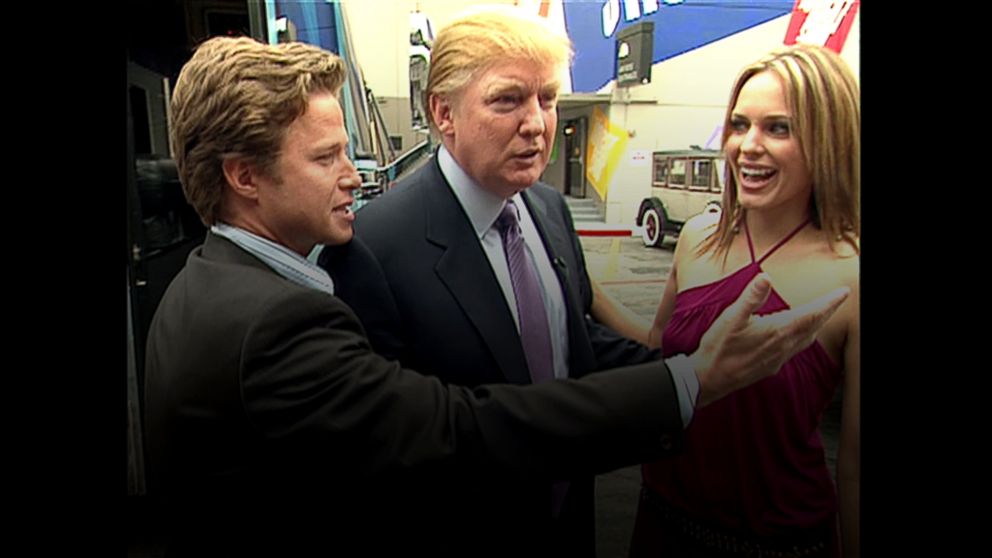ANALYSIS: In questioning authenticity of 'Access Hollywood' tape, President Trump seeks to define own reality
Trump privately questioned the authenticity of the "Access Hollywood" tape.
— -- Even in the realm of the whoppers that have defined the Trump era, this stands out.
President Donald Trump of late has been privately questioning the authenticity of the infamous “Access Hollywood” tape, according to a report in The New York Times that was confirmed by ABC News. He has suggested the tape might not be authentic in a series of conversations with advisers and even a Republican senator in recent weeks, according to ABC News.
No shred of evidence has been introduced to back up any part of such a theory.
When the 2005 tape’s emergence last October looked as though it might sink the campaign, candidate Trump broke his typical no-apologies rule to explicitly admit the voice on the tape was his, saying in a video statement, “I said it, I was wrong, and I apologize.” He repeatedly referred to the comment as “locker-room talk” when subsequently asked about it.
It is an inconvenient fact for the White House and the Republican Party that the president of the United States was caught on tape seeming to brag about sexual assault.
But it is a fact: “It’s like a magnet. Just kiss. I don’t even wait. And when you’re a star, they let you do it. You can do anything,” Trump said to the show’s host Billy Bush, recorded via a mic he appeared not to realize was hot. “Grab them by the p----. You can do anything.”

On one level, questioning the tape’s authenticity in private conversations might be an attempt by Trump to gain some credibility during a moment of cultural reassessment around sexual abuse and harassment.
He may also simply be trying to salvage a Senate seat for the Republican Party. His decision to stand by Alabama Senate candidate Roy Moore despite multiple women’s accusations of unwanted and inappropriate sexual contact by him is predicated on the possibility that Moore has been wrongly accused.
“Let me just tell you, Roy Moore denies it,” Trump said last week. “That’s all I can say. He denies it. By the way, he totally denies it.”
There is another and potentially darker level to what might be the most audacious attempt by this president to define his own reality.
Trump is attempting to be the arbiter of what’s true and false — or at least of what is deserving of public debate. It was a tactic he used to great effect on the campaign, whether he was insisting that he witnessed Muslims on television celebrating in New Jersey on 9/11 or suggesting that Sen. Ted Cruz’s father was somehow involved in John Kennedy’s assassination.
Shades of this tactic are evident in Trump’s continuing assault on the press as purveyors of “fake news.” His use of the term serves to possibly undermine reporting by mainstream news outlets and to minimize the scrutiny of actual fake news, including stories whipped up by foreign or other nefarious entities to undermine public faith in democracy.
Even today, Trump suggested a contest to determine “the most dishonest, corrupt and/or distorted” television network. He tweeted that, except for Fox News, “they are all bad. Winner to receive the FAKE NEWS TROPHY!”
The truth is that he regularly employs false or misleading statements in the normal course of a presidency that is anything but normal.
The Washington Post last month tallied more than 1,300 such statements over his first nine months in office. That list included everything from faulty superlatives about legislative accomplishments and goals to his false claim that “Obama had my ‘wires tapped’ in Trump Tower just before the victory.”
It is sometimes said of Trump that he gets in his own way by following his instincts, that his tweets and other utterances often get him and his agenda off track.
But denying indisputable facts is something different. Denying the authenticity of a tape Trump knows full well to be of him carries larger — and potentially far more troubling — meaning than a typical baseless claim.




